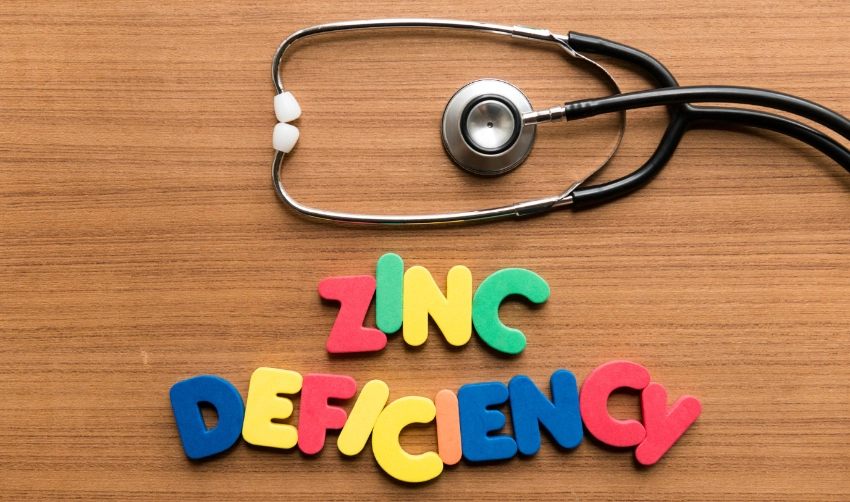Zinc, an essential trace mineral, plays a pivotal role in numerous bodily functions and processes. However, many individuals, both male and female, often overlook its importance. Recent studies have highlighted the various zinc deficiency symptoms that can manifest in different ways across genders. From low zinc levels symptoms that can be subtle to more pronounced zinc deficiency neurological symptoms, the range is vast. Women, in particular, need to be aware of low zinc symptoms in female and specific zinc deficiency symptoms in women. Similarly, men should be well-informed about the zinc deficiency symptoms in males. Additionally, the broader category of vitamin zinc deficiency symptoms encompasses a range of signs that can affect individuals regardless of age or gender. Two areas where zinc has shown significant promise are in Zinc for osteoporosis prevention and how zinc helps with heavy PMS, offering relief and support in these conditions.
What Happens If Zinc Is Low in Body?
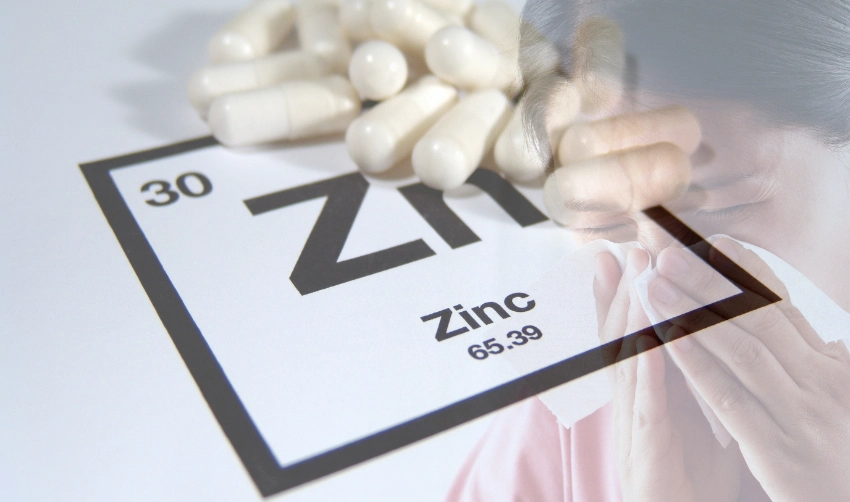
Zinc plays a pivotal role in numerous bodily functions, and a deficiency can lead to a myriad of health issues. Zinc deficiency symptoms can manifest in various ways, including skin changes that resemble eczema initially. These skin changes, often noticed first around the mouth, hands, and nappy area, may present with cracks and a ‘glazed’ appearance. Unlike typical eczema, these symptoms do not improve with the application of moisturisers, steroid creams, or lotions. Additionally, individuals with low zinc levels symptoms might experience hair loss, a higher frequency of infections, and wounds that take an extended time to heal. Diarrhoea is another common symptom associated with zinc deficiency. It’s worth noting that specific zinc deficiency neurological symptoms can also arise, such as a loss of taste and smell. Both zinc deficiency symptoms in women and zinc deficiency symptoms in males can be quite similar, but it’s essential to be aware of any low zinc symptoms in female as they might differ slightly.
The underlying causes of zinc deficiency range from problems with absorbing zinc from one’s diet to not consuming enough zinc-rich foods. For instance, zinc from animal-based foods is better absorbed than that from plant-based foods, putting vegetarians, vegans, and those on long-term restricted diets at a higher risk of deficiency. Moreover, babies who are exclusively breastfed for more than six months might also face a risk due to the low zinc content in breastmilk. If you suspect a vitamin zinc deficiency symptom, it’s crucial to consult with a healthcare professional. They might recommend vitamins for hair growth or other supplements to address the deficiency.
What Is the Main Cause of Zinc Deficiency?

Zinc deficiency is a condition where the body does not have sufficient amounts of the essential mineral, zinc, to carry out its vital functions. One of the primary causes of zinc deficiency is problems with absorbing zinc from the diet. This can be due to certain medical conditions that interfere with zinc absorption from food. For instance, older individuals and those with some gastrointestinal diseases might face challenges in absorbing nutrients, including zinc. Additionally, the type of food consumed plays a role. Zinc from animal-based foods is absorbed more efficiently than that from plant-based foods. As a result, vegetarians, vegans, and those on long-term restricted diets might be at a higher risk of zinc deficiency. Babies who are exclusively breastfed for more than six months might also experience this deficiency since breastmilk contains only low amounts of zinc. Furthermore, certain medications can increase the loss of zinc through urine. It’s worth noting that while zinc deficiency symptoms can manifest in various ways, including skin changes, hair loss, and a prolonged healing process for wounds, there are also specific zinc deficiency neurological symptoms. It’s essential for both males and females to be aware of the signs, as low zinc symptoms in females, zinc deficiency symptoms in women, and zinc deficiency symptoms in males can have distinct manifestations. For those looking to address this deficiency, considering supplements for men to take daily might be a beneficial step.
It’s crucial to understand that while vitamin zinc deficiency symptoms can be alarming, the condition is treatable. Zinc supplements are often recommended to address the deficiency, leading to rapid improvements, especially in skin symptoms. However, it’s essential to consult with a healthcare professional before starting any supplementation to ensure the right dosage and avoid potential side effects.
10 Most Common Signs of Zinc Deficiency
Zinc is an essential mineral that is involved in many important bodily functions, including cell growth and repair, immune function, and metabolism. Zinc deficiency is a common problem that can be caused by a number of factors, including poor diet, malabsorption, and certain medical conditions.
The most common signs of zinc deficiency include:
Unexplained Weight Loss
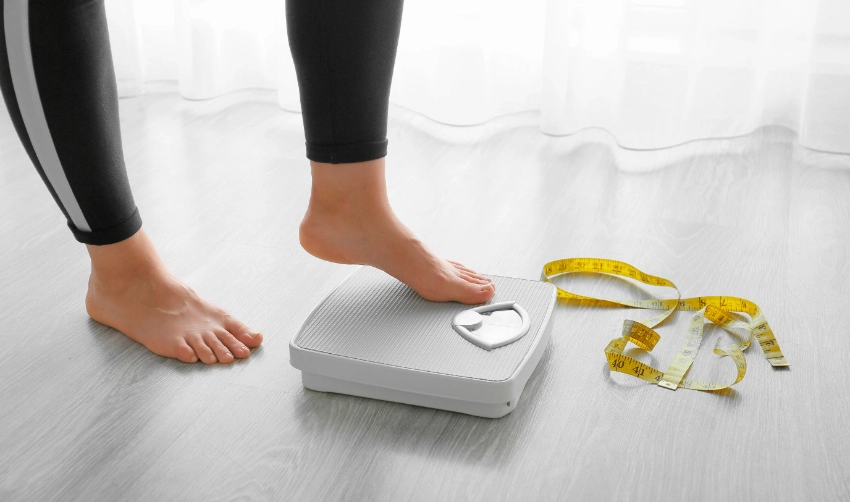
Zinc deficiency can sometimes manifest as unexplained weight loss. This symptom might be overlooked or attributed to other causes, but it’s essential to consider zinc deficiency as a potential factor. Weight loss might occur due to the body’s inability to absorb nutrients efficiently, leading to decreased appetite and subsequent weight loss. It’s crucial to monitor any sudden or unexplained changes in weight and consult a healthcare professional to determine the underlying cause.
Hair Loss
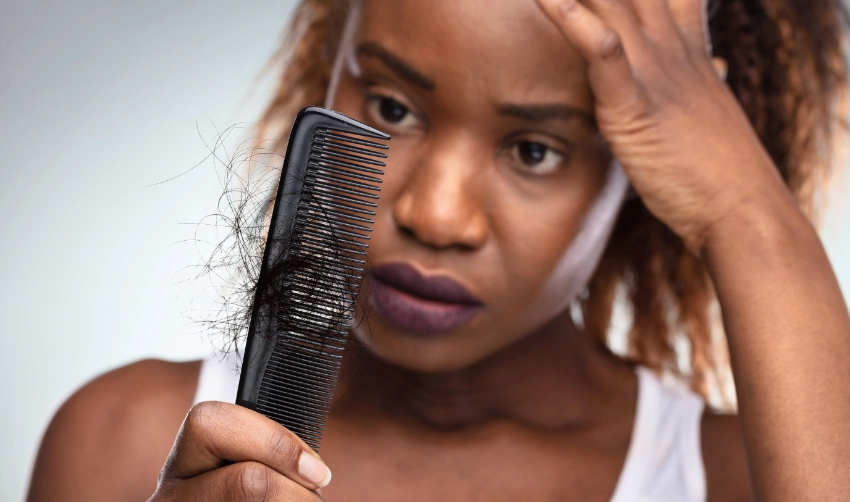
One of the more noticeable zinc deficiency symptoms is hair loss. Zinc plays a vital role in hair tissue growth and repair. When the body lacks adequate zinc, it might disrupt the hair growth cycle, leading to shedding or thinning of hair. Both males and females can experience this symptom, making it essential to be aware of low zinc symptoms in females and zinc deficiency symptoms in males.
Dizziness or Nausea

Dizziness or nausea can be indicative of low zinc levels symptoms. While these symptoms can be associated with various conditions, they might be a sign of the body’s reduced capability to process and utilize nutrients due to zinc deficiency. Regular episodes of dizziness or nausea without any apparent cause should be discussed with a healthcare provider.
Sudden Headaches That Will Not Go Away

Persistent headaches that don’t seem to go away might be linked to zinc deficiency. While headaches can have multiple triggers, a deficiency in essential minerals like zinc can be a contributing factor. It’s always recommended to seek medical advice if one experiences chronic or severe headaches.
Wounds That Won’t Heal Well

A hallmark sign of zinc deficiency is the slow healing of wounds. Zinc plays a pivotal role in cell division, protein synthesis, and inflammation control, all of which are crucial for wound healing. If cuts, scrapes, or other injuries take longer than usual to heal, it might be a sign of low zinc levels in the body.
Lack of Alertness

Zinc deficiency neurological symptoms can manifest as a lack of alertness or reduced cognitive function. Zinc is essential for neurotransmitter function and brain cell communication. A deficiency can lead to decreased alertness, making tasks that require concentration more challenging.
Decreased Sense of Smell and Taste

A diminished sense of smell and taste can be direct zinc deficiency symptoms. Zinc is crucial for the proper function of the olfactory and gustatory systems. If foods start to taste bland or if familiar smells become unrecognizable, it might be time to check zinc levels.
Diarrhoea
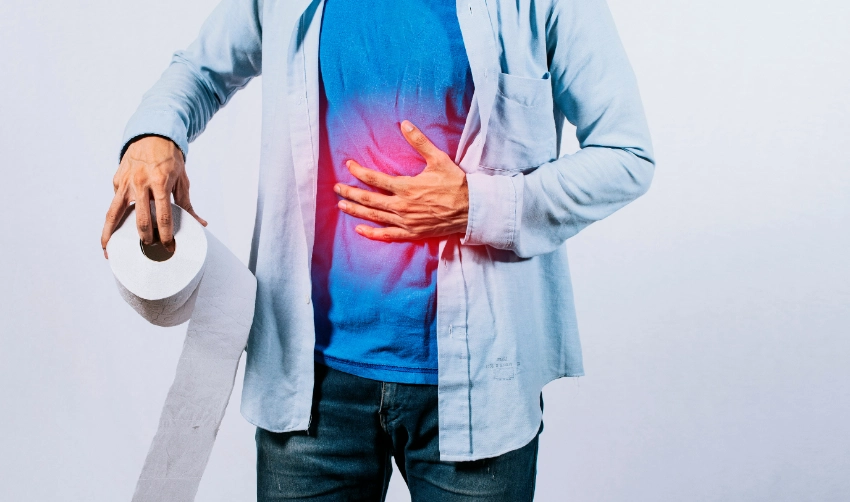
Diarrhoea is another symptom associated with zinc deficiency. The mineral plays a role in digestive enzyme production and gut health. Persistent diarrhoea, especially without any known cause, might be indicative of low zinc levels in the body.
Loss of Appetite

Loss of appetite can be a direct result of zinc deficiency. Zinc is essential for the production of hydrochloric acid in the stomach, which aids in food digestion. A lack of this acid can lead to reduced appetite and subsequent weight loss.
Impotence &/or Erectile Dysfunction

Zinc deficiency symptoms in males can manifest as impotence or erectile dysfunction. Zinc plays a vital role in male reproductive health, and a deficiency can lead to disruptions in testosterone levels and sperm production. It’s essential for men to be aware of their zinc levels and seek medical advice if they experience such symptoms.
Is It OK to Take Zinc Everyday?

Zinc is an essential trace element that plays a crucial role in various bodily functions, including immune response, wound healing, blood clotting, thyroid function, and maintaining vision. The body doesn’t produce zinc on its own, making it imperative to obtain it from dietary sources or supplements. While zinc is beneficial and even necessary for health, it’s essential to understand that the body doesn’t store excess zinc. This means that a consistent daily intake is required, but it also implies the potential for overdose if consumed in large amounts. Overconsumption can lead to a range of zinc deficiency symptoms or other health issues.
It’s also noteworthy that while many people take zinc to address zinc deficiency symptoms, such as low zinc levels symptoms or zinc deficiency neurological symptoms, it’s vital to ensure the right dosage. Both males and females should be aware of the specific signs of deficiency, including low zinc symptoms in females, zinc deficiency symptoms in women, and zinc deficiency symptoms in males. While zinc supplements can be beneficial, especially for those who might not get enough from their diet, it’s always recommended to consult with a healthcare professional before starting any supplementation. This ensures that the intake is appropriate for individual needs and doesn’t interfere with other medications or health conditions.
Conclusion
In wrapping up our exploration of zinc and its myriad benefits, it’s clear that understanding and recognizing zinc deficiency symptoms is crucial for overall health and well-being. Whether you’re experiencing low zinc levels symptoms or more specific issues like zinc deficiency neurological symptoms, it’s essential to address them promptly. Both low zinc symptoms in female and zinc deficiency symptoms in males can have long-term implications if not addressed. As we’ve delved into the importance of zinc, from general vitamin zinc deficiency symptoms to its role in specific conditions, the value of this mineral cannot be overstated. For those looking to incorporate zinc into their daily regimen or seeking a reliable source of essential minerals, consider exploring options to buy zinc and minerals online in Kensington. With the right knowledge and resources, you can ensure optimal zinc levels and enjoy the myriad health benefits it offers.


